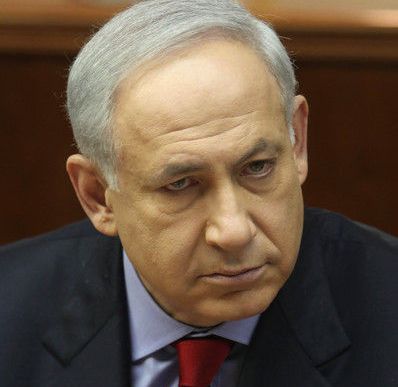The Zionist entity voiced concern on Monday after the candidate of Egypt’s powerful Muslim Brotherhood became the new President.
The Zionist entity voiced concern on Monday after the candidate of Egypt’s powerful Muslim B rotherhood became the new President.
rotherhood became the new President.
Politicians along with media outlets reflected on Monday the Zionist entity’s uncertainty about what the election of Muslim Brotherhood President for Tel Aviv’s once most important Arab ally would mean.
Prime Minister Benjamin Netanyahu issued a careful statement on Sunday evening, after Mursi was declared Egypt's first democratically elected leader.
"Israel values the democratic process in Egypt and respects the results of the presidential election," his office said in a statement.
"Israel hopes to continue cooperation with the Egyptian government on the basis of the peace treaty" signed by the two former enemies in 1979.
For his part, Defense Minister Ehud Barak noted that the new regime could provide both "opportunities and challenges," and said the Zionist entity would act to ensure its long-term security interests "as well as our responsibility to contribute what we can to the stability, peace and calm in the region."
Meanwhile, AFP news agency quoted a senior Israeli official as saying that Mursi’s win “was not encouraging for Israel.”
"The victory of Islamists is not likely to reassure Israel... We hope for a pragmatic attitude on their part," he said on condition of anonymity.
"Israel and Egypt have the same imperatives, the security of their 240-kilometre (150-mile) border, the negotiated settlement of the Israeli-Palestinian conflict and economic interests," he added.
Former defense minister Binyamin Ben Eliezer, who was close to Egypt's ousted president Hosni Mubarak, told Israeli public radio that Egypt would now be led "by a man who has never hidden his hostility towards Israel."
"We must seek dialogue with the Islamists, and at the same time be prepared for war," he said.
MEDIA REFLECTS CONCERN
On the other hand, Israeli newspapers expressed concern as they considered Mursi’s election was “dangerous” for the Zionist entity.
"Darkness in Egypt," read the headline of the top-selling Yediot Aharonot daily, with commentator Smadar Peri writing inside the newspaper that Mursi's victory was a “dangerous development for Israel.”
"From our standpoint, when the presidential palace in Cairo is painted for the first time in Islamic colors, this is a black and dark day," she wrote.
Elsewhere in the same newspaper, analyst Alex Fishman wrote that Mursi's victory meant "everything is open, and the future is unclear."
Israel should be prepared for every eventuality," he wrote, evoking the possibility of "an Islamist intelligence minister, a re-examination of the peace accords, a collapse of the economic agreements and lack of security coordination."
"The new Middle East. The fear has become reality, the Muslim Brotherhood are in power in Egypt," lamented the Maariv daily.
"The peace treaty has been put in doubt," the paper wrote, adding that "there is very serious concern in the political and military class in Israel."